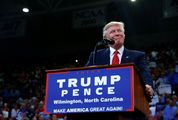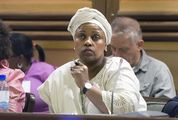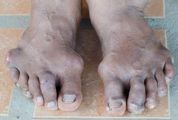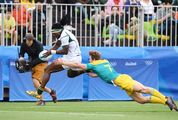NELSON Mandela’s legendary commitment to the rule of law played a crucial, defining role in giving constitutionalism deep and enduring roots, say the lawyers who advised him and interacted with him during his stint as president of South Africa.
As all South Africa and the world mourn Madiba, the legal community feels a special claim: among the other things he was — president, prisoner, husband and father, statesman, icon, moral giant — Mandela was also a lawyer, after all.
And although he did not practise for that many years, the discipline and rigour of the law stayed with him to the end, say those who knew him.
Just six months after Mandela swore in the 11 judges that made up the first bench of the Constitutional Court, the court turned around and set aside a presidential proclamation as unconstitutional.
Rumour has it that some of the judges were a bit nervous — telling Nelson Mandela that he was wrong could not have been easy.
But his reaction to that judgment is viewed by constitutional lawyers as a key moment in South Africa’s history: he called a press conference and told the media that, as president of the country, he must be the first to show respect for the constitution — as interpreted by the Constitutional Court.
"For me that moment, that day, was as important as the day when we all stood in line and voted," says Justice Albie Sachs, one of the judges who made the decision.
"When we voted, that was to establish South Africa as a democracy. But when Nelson Mandela accepted the decision of our court, and with so much grace, that was the day when we became a constitutional democracy," he said.
This was to be a pattern of his incumbency as president.
Gilbert Marcus SC represented him in the Hugo case, which was about the granting of presidential pardons to women prisoners who had young children.
Mr Marcus says when they were discussing how to approach the case, he raised a possible argument based on the UK law of prerogative powers. "I said to him: it’s a perfectly legitimate argument. I’m just concerned that it may give the impression that you think the president should be above the law. "He said: "I forbid you to advance that argument," says Mr Marcus.
Then, in 1998, Mandela, the president of South Africa, was ordered to appear in court to testify. It was unheard of and outrageous. The case was the (now infamous) South African Rugby Union (Sarfu) matter — in which Mr Mandela was challenged on how he had set up an inquiry into claims of racism in the game of rugby.
Mandela had already given evidence on a sworn affidavit. His counsel Wim Trengove SC says the order to appear in court — made by a judge who had personally fought to uphold racial restrictions at the Pretoria Bar — implied the possibility that Mr Mandela had lied.
Mr Trengove and Fink Haysom, Mr Mandela’s legal adviser, said he could simply, albeit unlawfully, ignore the order. Who would enforce it? Instead, Mandela obeyed the order. "Even though it was embarrassing, he felt it was important that everyone obey the courts and be seen to obey the courts. No matter who the judge was," Mr Trengove says. He cared deeply about always being compliant with the law, says his assistant legal adviser, Vuyo Kahla, who worked under Mr Haysom. But he also cared about people’s perceptions — about how things would look, he says.
Mr Kahla was just 26, and he says the experience defined him as a lawyer. What stays with Mr Kahla the most was Mandela’s insistence on, and appreciation for, excellence.
"You could see his eyes twinkle when you gave him advice that had been thought through," Mr Kahla says. Mandela, Oliver Tambo, Bram Fischer, Dullah Omar, Joe Slovo inspired and paved the way for generations of struggle lawyers — Duma Nokwe, Griffiths and Victoria Mxenge, Albie Sachs and Pius Langa were just a few.
The National Association of Democratic Lawyers (Nadel) — the legal body linked most closely with the ANC — says: "Madiba showed us that a legal career was a means of effecting societal change."
Black Lawyers Association President Busani Mabunda says in his tribute that the organisation’s first president, Godfrey Pitje, was mentored by Mandela. Advocates for Transformation National chairman Dumisa Ntsebeza SC says for Mandela and Mr Tambo lawyering went "far beyond just appearing in the court room and dealing with seduction and pregnancies, evictions and road accidents".
"For them lawyering meant leadership and leadership meant involvement in the struggle. Mandela and Tambo never took their eye off the ball … that ball was the complete liberation of society."
Mr Ntsebeza remembers how Mandela took to the stand in the Sarfu case. "I mean, it shows something about him, he was an aristocrat: he knows he is a chief from Qunu, ordained to lead."
In Long Walk to Freedom, Mandela says he learned much about conducting himself in politics from watching his uncle during his chiefly duties, as he first listened to everyone and then pronounced on a matter. In later life Mr Mandela had a similar approach, and lawyers see it as revealing of the lawyer, or inner judge.
Former Nadel President Gcina Malindi SC says when Mandela chaired meetings, he would listen to argument. At the end, he would summarise each person’s contribution and give his view, "always giving reasons. It was a very lawyerly approach".
Whether challenging the judges, even when facing the death penalty, or as South Africa’s first democratically elected president, he remained thoughtful, respectful, firm and principled.
He helped to rescue the legal system from its atrocious identification with oppression.
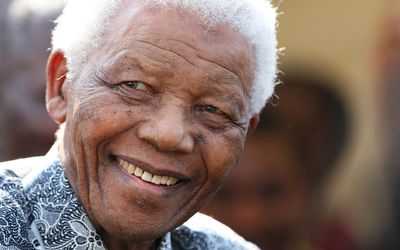
Former president Nelson Mandela. Picture: SUNDAY TIMES
NELSON Mandela’s legendary commitment to the rule of law played a crucial, defining role in giving constitutionalism deep and enduring roots, say the lawyers who advised him and interacted with him during his stint as president of South Africa.
As all South Africa and the world mourn Madiba, the legal community feels a special claim: among the other things he was — president, prisoner, husband and father, statesman, icon, moral giant — Mandela was also a lawyer, after all.
And although he did not practise for that many years, the discipline and rigour of the law stayed with him to the end, say those who knew him.
Just six months after Mandela swore in the 11 judges that made up the first bench of the Constitutional Court, the court turned around and set aside a presidential proclamation as unconstitutional.
Rumour has it that some of the judges were a bit nervous — telling Nelson Mandela that he was wrong could not have been easy.
But his reaction to that judgment is viewed by constitutional lawyers as a key moment in South Africa’s history: he called a press conference and told the media that, as president of the country, he must be the first to show respect for the constitution — as interpreted by the Constitutional Court.
"For me that moment, that day, was as important as the day when we all stood in line and voted," says Justice Albie Sachs, one of the judges who made the decision.
"When we voted, that was to establish South Africa as a democracy. But when Nelson Mandela accepted the decision of our court, and with so much grace, that was the day when we became a constitutional democracy," he said.
This was to be a pattern of his incumbency as president.
Gilbert Marcus SC represented him in the Hugo case, which was about the granting of presidential pardons to women prisoners who had young children.
Mr Marcus says when they were discussing how to approach the case, he raised a possible argument based on the UK law of prerogative powers. "I said to him: it’s a perfectly legitimate argument. I’m just concerned that it may give the impression that you think the president should be above the law. "He said: "I forbid you to advance that argument," says Mr Marcus.
Then, in 1998, Mandela, the president of South Africa, was ordered to appear in court to testify. It was unheard of and outrageous. The case was the (now infamous) South African Rugby Union (Sarfu) matter — in which Mr Mandela was challenged on how he had set up an inquiry into claims of racism in the game of rugby.
Mandela had already given evidence on a sworn affidavit. His counsel Wim Trengove SC says the order to appear in court — made by a judge who had personally fought to uphold racial restrictions at the Pretoria Bar — implied the possibility that Mr Mandela had lied.
Mr Trengove and Fink Haysom, Mr Mandela’s legal adviser, said he could simply, albeit unlawfully, ignore the order. Who would enforce it? Instead, Mandela obeyed the order. "Even though it was embarrassing, he felt it was important that everyone obey the courts and be seen to obey the courts. No matter who the judge was," Mr Trengove says. He cared deeply about always being compliant with the law, says his assistant legal adviser, Vuyo Kahla, who worked under Mr Haysom. But he also cared about people’s perceptions — about how things would look, he says.
Mr Kahla was just 26, and he says the experience defined him as a lawyer. What stays with Mr Kahla the most was Mandela’s insistence on, and appreciation for, excellence.
"You could see his eyes twinkle when you gave him advice that had been thought through," Mr Kahla says. Mandela, Oliver Tambo, Bram Fischer, Dullah Omar, Joe Slovo inspired and paved the way for generations of struggle lawyers — Duma Nokwe, Griffiths and Victoria Mxenge, Albie Sachs and Pius Langa were just a few.
The National Association of Democratic Lawyers (Nadel) — the legal body linked most closely with the ANC — says: "Madiba showed us that a legal career was a means of effecting societal change."
Black Lawyers Association President Busani Mabunda says in his tribute that the organisation’s first president, Godfrey Pitje, was mentored by Mandela. Advocates for Transformation National chairman Dumisa Ntsebeza SC says for Mandela and Mr Tambo lawyering went "far beyond just appearing in the court room and dealing with seduction and pregnancies, evictions and road accidents".
"For them lawyering meant leadership and leadership meant involvement in the struggle. Mandela and Tambo never took their eye off the ball … that ball was the complete liberation of society."
Mr Ntsebeza remembers how Mandela took to the stand in the Sarfu case. "I mean, it shows something about him, he was an aristocrat: he knows he is a chief from Qunu, ordained to lead."
In Long Walk to Freedom, Mandela says he learned much about conducting himself in politics from watching his uncle during his chiefly duties, as he first listened to everyone and then pronounced on a matter. In later life Mr Mandela had a similar approach, and lawyers see it as revealing of the lawyer, or inner judge.
Former Nadel President Gcina Malindi SC says when Mandela chaired meetings, he would listen to argument. At the end, he would summarise each person’s contribution and give his view, "always giving reasons. It was a very lawyerly approach".
Whether challenging the judges, even when facing the death penalty, or as South Africa’s first democratically elected president, he remained thoughtful, respectful, firm and principled.
He helped to rescue the legal system from its atrocious identification with oppression.




